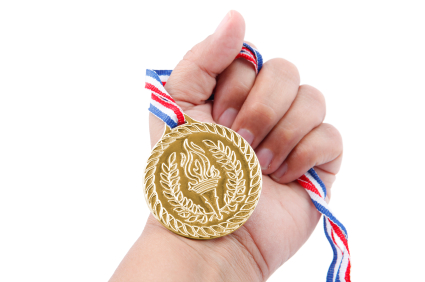While most people are far from being world-class competitors, each of us has an area of life where we would like to perform our best. These common areas of performance include work, the gym, social settings or life at home where days of low energy or lack of focus can drive the average person to less than stellar performance. Similar to athletes, the key to your “on switch” may lie in what you’re putting in your body. Simple nutritional strategies can help turn the average working Joe into the work hard, play hard dominator of office and home life.
Caffeine
Caffeine is no stranger to most people. In fact it’s usually the first thing we reach for during times of sluggishness or lethargy. Typically obtained by drinking coffee or tea, it is also available in energy chews, drinks, and shots. It’s no secret that caffeine will give you the boost you’re looking for – it’s a powerful kick for the body and the brain. However, with great power comes great responsibility. Abuse of caffeine can claim your energy and affect mental focus or bowel function. But with the right approach, you can safely harness the benefits of this drug.
The beginning affects of caffeine can be felt within 15 minutes of consumption. Within an hour, its full affects of can be felt. So, if the big, important board meeting at work is scheduled for 10am, make sure you’re done sipping down your beverage of choice around 9am. Similarly, if you want an added boost in fat burning before your workout, try to get your caffeine in 1 hour beforehand. Just remember: plan your caffeine 1 hour before your “game time.” Also remember that caffeine will stay in the system for about six hours. This is the reason why you should avoid it within the few hours before you go to sleep.
From a health perspective, the best sources of caffeine are coffee or tea. Energy drinks and shots usually contain significantly more caffeine than the average person needs and most end up causing rapid “crashes” of energy with symptoms of withdrawal. The amount of caffeine you may need to feel a boost will be different than that of others. Generally speaking, it’s good to keep your tolerance low by limiting the amount of caffeine you consume on a weekly basis. It should be used only when needed, not for normal daily functioning.
Brain Foods
Besides caffeinated beverages, there are other strategies that can help boost your mental performance. Fish oils containing high amounts of EPA and DHA (eicosapentaenoic acid and docosahexaenoic acid) can boost brainpower and lift your spirits. EPA has been shown to combat depression, anxiety and mood disorders, making it a common treatment for many. DHA on the other hand may be best for students and those who are constantly learning new information. It is essential for brain development and learning. Deficiencies of DHA inhibit learning ability. On the other hand, taking DHA supplements has been shown to actually boost IQ in some cases.
Energy Timing
One final nutritional strategy is to pay attention to the timing and types of foods you’re eating. If you have ever felt like you’re too tired to go to the gym at the end of the day, or that you’re always fatigued at work, you may want to consider the following points to help control energy:
- Fiber slows down the digestion of carbohydrates and helps keep energy levels constant
- Protein slows down carbohydrate absorption and also sustains energy levels for 2-3 hours after eating
- Fat gives sustained energy, but high fat meals will cause drops in blood sugar
- Sugars will cause a burst followed by an eventual drop in energy your energy level
With these points in mind, you can start to think about food combinations that can help maintain your energy levels. For example, if you can’t avoid the sugary treat that your coworker brought into the office, try having it with a source of protein or fiber to avoid a crash after eating. Cookies with milk are a good example. Another example is to eat a sweet snack if you have 30 minutes before gym time and you feel the 5 o’clock sleepiness coming on. If you time it right, the short spike in energy may be just enough to motivate you and start your workout.
Any athlete will tell you that there is nothing more important than continuous training and practice. These strategies won’t change your energy over night. Nevertheless, when put into practice for the long run, they can help promote a much healthier and productive life.
 Why We Exercise
Why We Exercise